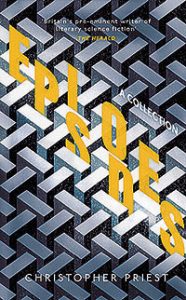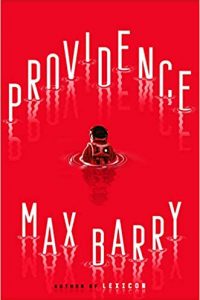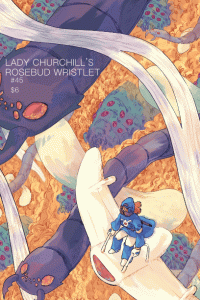Gary K. Wolfe Reviews Episodes: A Collection by Christopher Priest
 Episodes: A Collection, Christopher Priest (Gollancz 978-1473200630, £8.99, 368pp, tp), May 2019. (Gollancz 978-1-473-22600-5, $24.99, 368pp, hc) August 2020.
Episodes: A Collection, Christopher Priest (Gollancz 978-1473200630, £8.99, 368pp, tp), May 2019. (Gollancz 978-1-473-22600-5, $24.99, 368pp, hc) August 2020.
Last month I had the opportunity to review an important 50-year retrospective of M. John Harrison stories, and so it seems appropriate to take a look at Episodes, a similar long-term retrospective from Christopher Priest, originally published in the UK last year and now available to the likes of us colonials. Both authors have enjoyed distinguished careers as novelists and both began those careers associated, willingly or not, with the revolutionary (or at least evolutionary) fervor of Britain’s New Wave. What, then, might we conclude about where the New Wave pointed SF, stylistically and thematically? The answer has to be, based on the work of two of its most successful survivors… nowhere in particular. Both Harrison and Priest had quite individual voices from the beginning, and they continued to refine those voices over decades. In Priest’s case, that involved an abiding interest in show business and performance, a slight tendency toward horror fiction (which surprised me a bit), and an almost obsessive fascination with the various ways he can manipulate time in a narrative.
The showbiz theme, which reached its most popular expression in Priest’s 1995 novel The Prestige (and Christopher Nolan’s subsequent film), is already in evidence in the earliest story here, the disturbing “The Head and the Hand” from 1972, involving a retired performer who has built a career amputating parts of himself onstage, and his particularly gruesome comeback. The story gains additional creepiness from its initial bucolic setting and the oddly diffident narrative voice of the performer’s long-time assistant. The hapless narrator of “The Stooge” finds work as a magician’s assistant, pretending to be an audience member, only to find himself the victim of a bizarre sort of identity theft. By the time of the most recent story here, “Shooting an Episode”, traditional showbiz has given way to VR, CCTV, and reality television. The narrator, a “gameplay coordinator” for a network, is troubled by this well-compensated but widely despised role in a manner that, oddly enough, echoes the narrator of Orwell’s famous essay “Shooting an Elephant”, which Priest says was the inspiration for the story.
An even more important theme, which has characterized Priest’s more recent work, from The Separation to the long-running Dream Archipelago stories including The Islanders and The Gradual, especially the alternate timelines of The Separation, is the notion of time gradients that increasingly seem to be central to the dream-like reality of the Archipelago. The longest story here, and one of the most beautiful, is an early exploration of ideas that became central to The Gradual. “Palely Loitering” is set in a kind of decadent, neo-Edwardian far future in which space travel has been all but abandoned, but a time-distorting “flux field” runs like a river through England. A visit to the “Flux Park” means crossing bridges that can take you a day forward or backward in time – but the narrator, too eagerly jumping from one of the bridges, steps into the flux field and meets a version of himself from decades in the future. Cast as an almost nostalgic memoir of childhood, early love, and societal change, it’s an excellent example of how SFnal time-shifts can actually illuminate human experience, rather than calling attention to their own ingenuity. Something similar is at work in “An Infinite Summer”, a time-bending romance that jumps among several periods between 1903 and 1940, but in which a few people can observe “freezers,” tableaux of people apparently frozen in time as far back as the Victorian era. Eventually we learn what it means to be one of those. “A Dying Fall”, a story written apparently because Priest was asked to write a story set in Belgium, is a somewhat more conventional “Owl Creek Bridge”-like tale in which a pleasant drive through the Belgian countryside turns out to be a near-death vision. In the Scheckley-like “futouristic.co.uk”, an online scam selling time machines leads to another surprising identity-flip.
Probably the closest Priest gets to conventional Lovecraftian horror is “I, Haruspex”, whose narrator has to consume some pretty repulsive meals to aid in his role as gatekeeper preventing demonic presences from breaking through a portal in his remote country house. This resolutely Gothic atmosphere, though, is counterpointed with another of Priest’s frozen-in-time tableaux (a recurring gesture in his work): this time, a German pilot, apparently from the future, whose crashing plane is trapped in a kind of time slippage in a nearby slough, vaguely anticipating some elements of The Separation. “The Ament” is a creepy mystery which gains tension from its alternating first- and third-person viewpoints: a serial murderer, who at first thinks his murders are only in his dreams, tries to reconcile his current life with a strange upbringing in which he posed for annual nude photos, together with a female childhood friend, for decades, in service of a project studying human growth. Again, time gets compressed and distorted in ominous ways. Perhaps the least impressive tale is “The Invisible Men”, an early attempt at political satire, but one of the most impressive, in terms of its uncanny tone, in “The Sorting Out”, in which an author finds that someone has been in her home – but only, apparently, to alphabetize her books and turn the dustjackets upside down. Priest generously offers forewords and afterwords to each story, a practice some authors studiously avoid but which I find fascinating, and it helps turn Episodes into a rather engaging stroll through Priest’s career, even as he cheerfully admits that short fiction – much of which was written on commission – is mostly an adjunct to his novels. It makes for a tasty selection of hors d’oeuvres, though.
Gary K. Wolfe is Emeritus Professor of Humanities at Roosevelt University and a reviewer for Locus magazine since 1991. His reviews have been collected in Soundings (BSFA Award 2006; Hugo nominee), Bearings (Hugo nominee 2011), and Sightings (2011), and his Evaporating Genres: Essays on Fantastic Literature (Wesleyan) received the Locus Award in 2012. Earlier books include The Known and the Unknown: The Iconography of Science Fiction (Eaton Award, 1981), Harlan Ellison: The Edge of Forever (with Ellen Weil, 2002), and David Lindsay (1982). For the Library of America, he edited American Science Fiction: Nine Classic Novels of the 1950s in 2012, with a similar set for the 1960s forthcoming. He has received the Pilgrim Award from the Science Fiction Research Association, the Distinguished Scholarship Award from the International Association for the Fantastic in the Arts, and a Special World Fantasy Award for criticism. His 24-lecture series How Great Science Fiction Works appeared from The Great Courses in 2016. He has received six Hugo nominations, two for his reviews collections and four for The Coode Street Podcast, which he has co-hosted with Jonathan Strahan for more than 300 episodes. He lives in Chicago.
This review and more like it in the October 2020 issue of Locus.
 While you are here, please take a moment to support Locus with a one-time or recurring donation. We rely on reader donations to keep the magazine and site going, and would like to keep the site paywall free, but WE NEED YOUR FINANCIAL SUPPORT to continue quality coverage of the science fiction and fantasy field.
While you are here, please take a moment to support Locus with a one-time or recurring donation. We rely on reader donations to keep the magazine and site going, and would like to keep the site paywall free, but WE NEED YOUR FINANCIAL SUPPORT to continue quality coverage of the science fiction and fantasy field.
©Locus Magazine. Copyrighted material may not be republished without permission of LSFF.








Congratulations on a wonderful review, Gary! I hope you get a chance to see the film version of the short story “The Stooge” from this book and maybe add a comment to your piece:
https://christopher-priest.co.uk/the-stooge
https://www.rogeliofojo.com